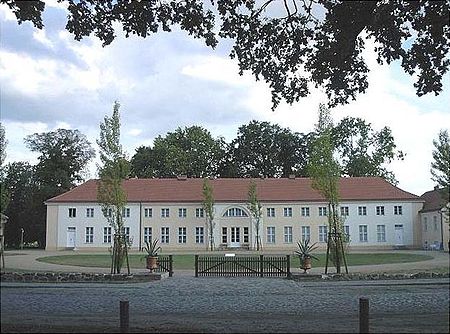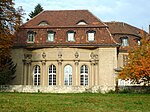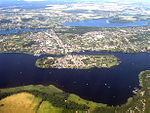Paretz
Localities in HavellandVillages in Brandenburg

Paretz is a village in the German state of Brandenburg in the district of Havelland, west of Berlin. Recently, a district reform made Paretz into a borough of the city of Ketzin. It has a population of approximately 400. In the late 18th and early 19th centuries the village was the summer residence King Frederick William III of Prussia and of his wife Queen Louise.
Excerpt from the Wikipedia article Paretz (License: CC BY-SA 3.0, Authors, Images).Paretz
L 92,
Geographical coordinates (GPS) Address Nearby Places Show on map
Geographical coordinates (GPS)
| Latitude | Longitude |
|---|---|
| N 52.466666666667 ° | E 12.883333333333 ° |
Address
L 92
14669
Brandenburg, Germany
Open on Google Maps











